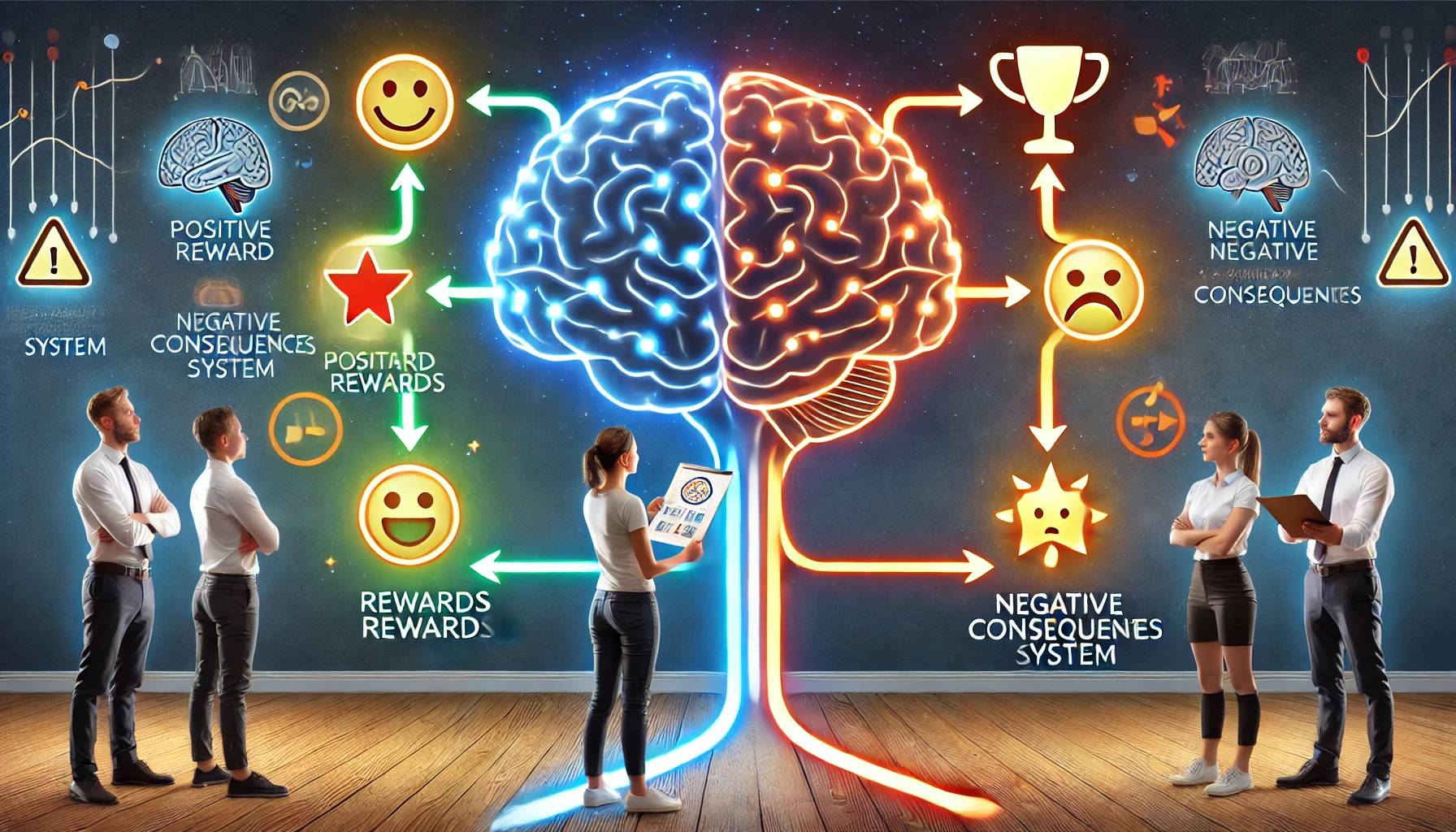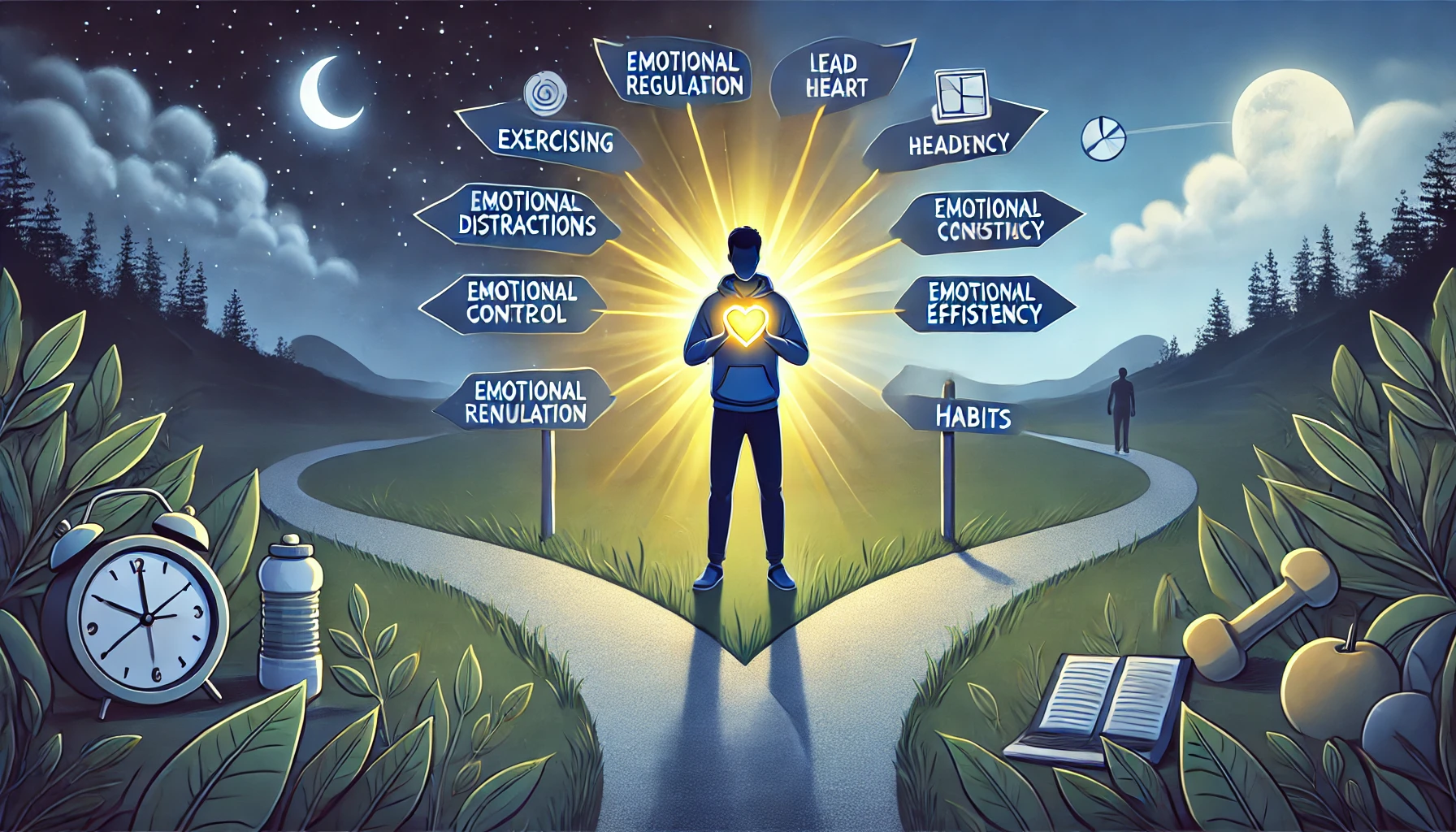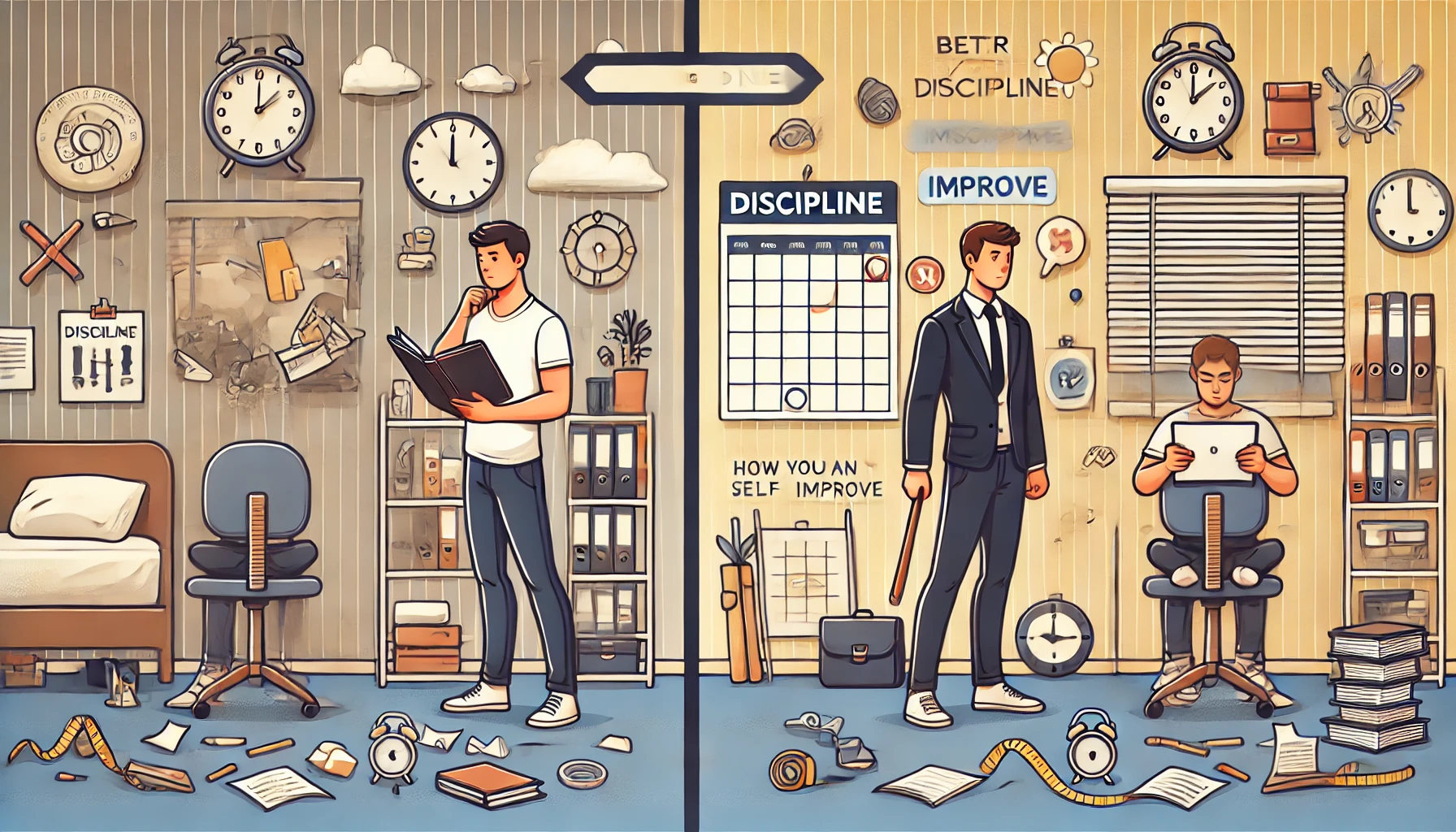Stress is one of the biggest hidden enemies of self-discipline and productivity. While a moderate amount of stress can boost performance, chronic stress weakens your ability to focus, control impulses, and maintain consistent habits. When unmanaged, stress hijacks your brain’s decision-making abilities, making it harder to stay disciplined and productive.
By understanding the neuroscience of stress and using science-backed stress management techniques, you can improve your self-control, focus, and efficiency. In this article, you’ll learn how stress affects self-discipline and productivity—and how to manage it effectively.
1. How Stress Disrupts Self-Discipline and Focus
When you experience stress, your body activates the sympathetic nervous system (SNS), also known as the fight-or-flight response. This releases cortisol and adrenaline, which temporarily increase alertness but reduce your ability to think logically and regulate emotions.
How Chronic Stress Weakens Self-Discipline:
❌ Impulsive Decision-Making – High cortisol weakens the prefrontal cortex, making it harder to resist temptations.
❌ Increased Procrastination – Stress triggers the limbic system (emotional brain), making you seek short-term relief instead of long-term goals.
❌ Reduced Energy and Focus – Mental fatigue from stress leads to poor concentration and lower productivity.
📌 Example: If you’re overwhelmed with deadlines, your brain prioritizes immediate comfort (e.g., checking social media, eating junk food) over important tasks.
2. The Science of Stress and Productivity
Stress isn’t always bad—short bursts of stress (eustress) can enhance focus and performance. However, chronic stress leads to burnout and decreased efficiency.
How Stress Affects Productivity:
✅ Mild stress → Increases focus, motivation, and alertness.
❌ Chronic stress → Causes mental exhaustion, distractibility, and lack of discipline.
📌 Example: Research shows that people under constant stress have lower productivity and make more mistakes, as their cognitive resources are spent managing anxiety instead of focusing on tasks.
3. How to Manage Stress to Improve Self-Discipline and Productivity
✅ a) Use Breathwork to Regulate the Nervous System
Deep breathing activates the parasympathetic nervous system (PNS), shifting the body into a calm and focused state.
🔹 Box Breathing: Inhale for 4 seconds → Hold for 4 seconds → Exhale for 4 seconds → Hold for 4 seconds.
🔹 Physiological Sigh: Take one deep breath, inhale again slightly, then exhale slowly.
🔹 Morning Deep Breathing: Start your day with 5 deep breaths to enhance focus.
📌 Example: Studies show that two minutes of deep breathing can lower cortisol levels, improving self-discipline and productivity.
✅ b) Reduce Decision Fatigue to Conserve Willpower
Every decision drains mental energy. Reducing unnecessary decisions frees up cognitive resources for disciplined actions.
🔹 Plan meals, outfits, and schedules in advance to avoid small daily decisions.
🔹 Use checklists and routines to automate decisions.
🔹 Prioritize tasks with time-blocking to avoid mental overload.
📌 Example: Barack Obama and Mark Zuckerberg wore the same outfits daily to conserve willpower for important decisions.
✅ c) Use Movement to Reset Your Nervous System
Exercise and movement reduce cortisol levels and enhance focus by increasing blood flow to the brain.
🔹 Take short movement breaks every 60-90 minutes.
🔹 Do 10-15 minutes of light exercise (walking, stretching, or yoga) to reset mental energy.
🔹 Use workouts to release stress and increase dopamine.
📌 Example: Research from Stanford shows that just 10 minutes of walking can reduce stress and increase productivity.
✅ d) Use the “2-Minute Stress Reset” for Instant Focus
If stress is overwhelming your discipline, do this quick nervous system reset:
🔹 Step 1: Take a deep breath and slowly exhale.
🔹 Step 2: Move your body for 1-2 minutes (jumping jacks, stretching).
🔹 Step 3: Reframe stress as a challenge instead of a threat (“This task will make me stronger”).
📌 Example: Elite athletes use quick stress resets before competitions to improve self-control and focus.
✅ e) Optimize Sleep to Improve Self-Control
Poor sleep weakens the prefrontal cortex, making you more impulsive and less disciplined.
🔹 Maintain a consistent sleep schedule (even on weekends).
🔹 Avoid screens 60 minutes before bed to protect melatonin production.
🔹 Create a relaxing pre-bed routine (reading, deep breathing).
📌 Example: People who get less than 6 hours of sleep per night experience 40% lower self-control the next day.
✅ f) Train Your Brain to Handle Discomfort
Discipline requires handling discomfort without avoiding tasks. Training your nervous system helps you stay calm under pressure.
🔹 Take cold showers to improve resilience.
🔹 Delay instant gratification (wait 10 minutes before checking social media).
🔹 Use the “Never Miss Twice” Rule – If you skip a habit once, get back on track immediately.
📌 Example: The Marshmallow Test found that people who practiced delayed gratification had higher success rates in life.
4. Long-Term Strategies to Build a Stress-Resilient Brain
✅ Expose Yourself to Natural Sunlight – Regulates circadian rhythm and improves mood.
✅ Eat Brain-Boosting Foods – Include omega-3s, magnesium, and antioxidants for cognitive health.
✅ Limit Caffeine and Sugar – Reduces stress spikes and energy crashes.
✅ Practice Gratitude Journaling – Shifts focus from stress to positive emotions.
📌 Example: Neuroscientists found that practicing gratitude daily reduces cortisol levels by 23%, improving resilience.
Final Thought: Master Stress to Enhance Self-Discipline and Productivity
Stress doesn’t have to control your actions. By managing stress effectively, you can strengthen your willpower, increase focus, and maintain high productivity levels.
✅ Use breathwork, exercise, and movement to regulate stress.
✅ Reduce decision fatigue and optimize sleep for better self-discipline.
✅ Train your brain to handle discomfort and maintain productivity under pressure.
Start today: Pick one stress-management strategy from this list and apply it daily to improve self-discipline and productivity! 🚀












Leave a Reply